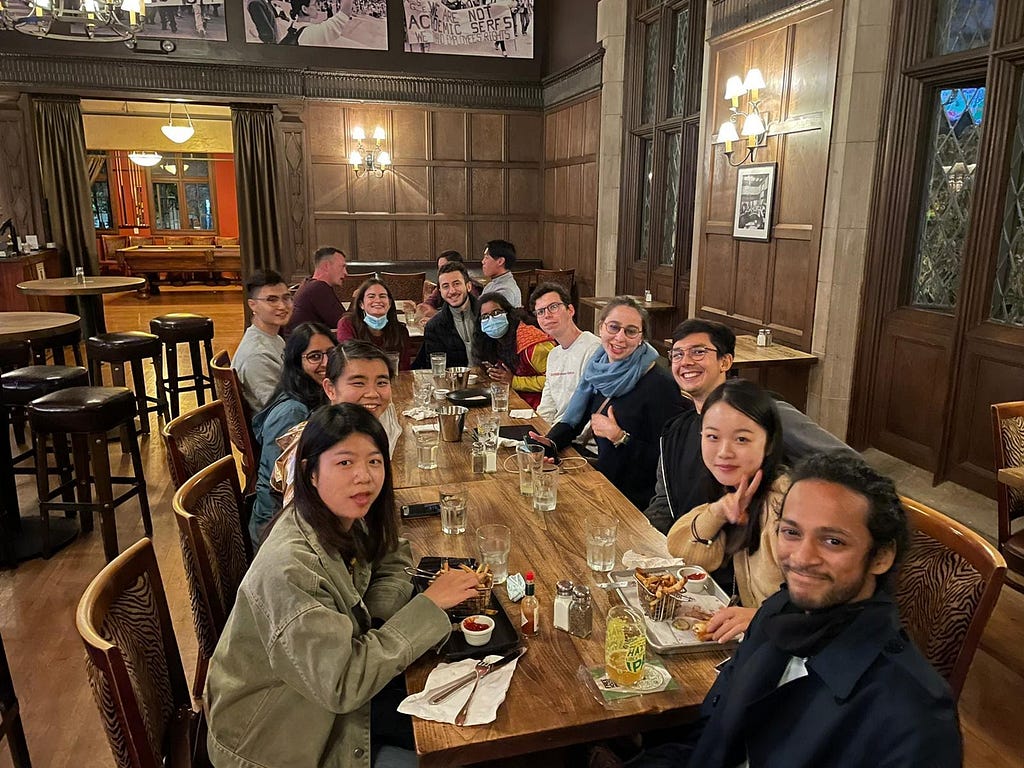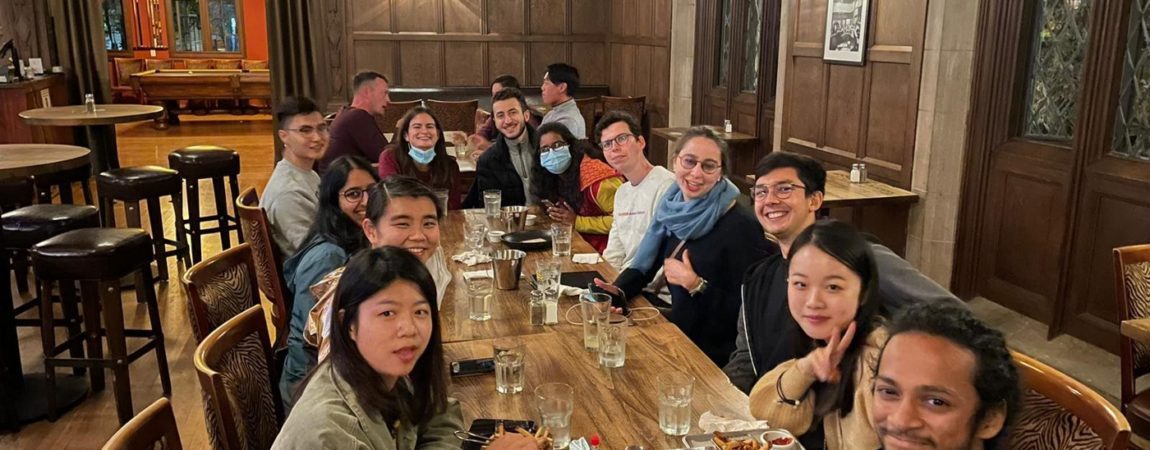Clémence Billiemaz and Moussa Nasroune on their shared interest in the field of data science, and what inspired them to lead the Data Science Affinity Group.

Tell us a bit about yourselves.
Moussa: I am from Paris, France where I was born and raised. I love playing soccer; I have played since I was in high school, and I’m in a league here in the Bay Area. My favorite team is Paris Saint-Germain (PSG). I’m also an F1 enthusiast and I often go to the gym here. Clémence: I come from Paris, France and I am a sports enthusiast. I spend a lot of time exercising, especially running. I love music and hanging out with my friends; exploring the Bay Area and its surroundings is a new hobby of mine. I am a social butterfly and I love meeting new people.What did you study in undergrad?
Moussa: I studied math and physics as an undergrad, but I also have a master’s degree in mechanical and industrial engineering, and another master’s degree in computational neuroscience. Previously, I worked for five months as a research data analyst at Thales in Paris where I analyzed data from helicopter pilots. Clémence: I studied math and physics as well as engineering sciences. I also studied arts and literature along with physics and math in a pluri-disciplinary manner. I then studied mechanical and electrical engineering. I also previously worked for three companies as a Data Analyst/Scientist with the latest experience in a tech consulting firm with a focus on Machine Learning.What sparked your personal interest in data science?
Moussa: Data science was the main reason for my degree in neuroscience. I wish to use these tools in the field of neuroscience to prevent neurodegenerative diseases.“Being able to understand how things work has always been a driver in my learning process.”Clémence: Being able to understand how things work has always been a driver in my learning process. Computers, data, and numbers being everywhere, it is quite natural that my interest shifted towards data science and to programming. I think many people are afraid of data and AI because they do not understand it and it is also our duty to make it accessible to a wider audience. I find it really exciting to solve problems with a team through the study of data and knowing that our work may have a tremendous impact on people makes it even more rewarding and challenging on a daily basis. Connect with Clémence and Moussa. Edited by Danielle Valdez.
Meet the MEng students behind the Data Science Affinity Group was originally published in Berkeley Master of Engineering on Medium, where people are continuing the conversation by highlighting and responding to this story.


